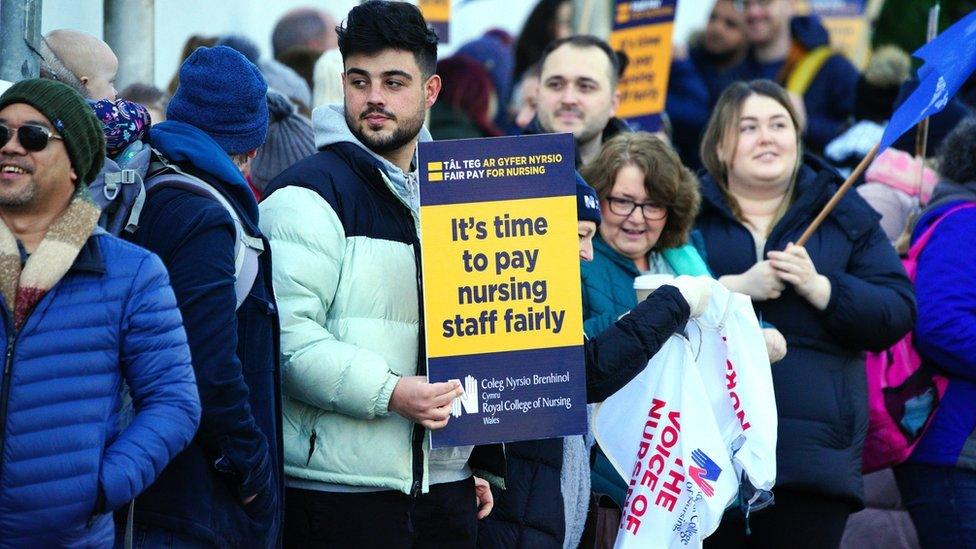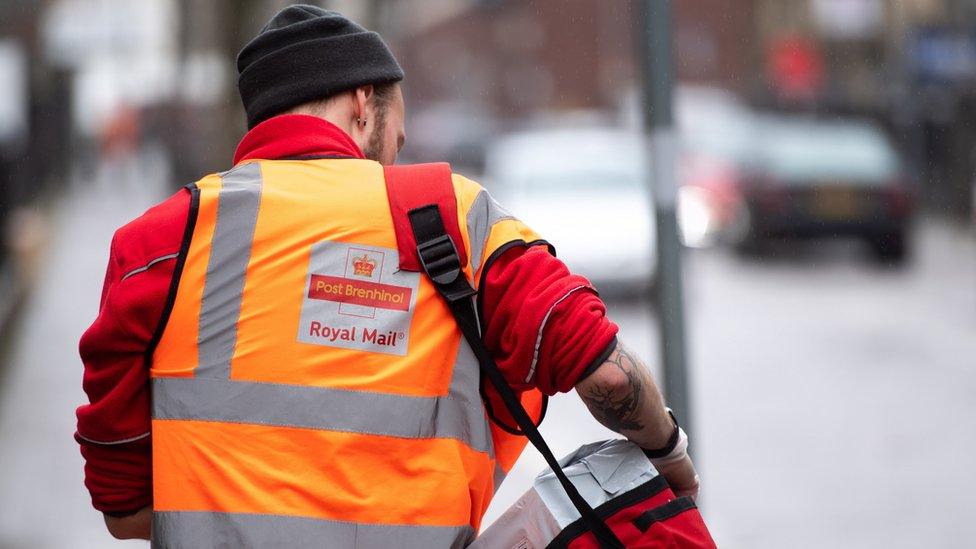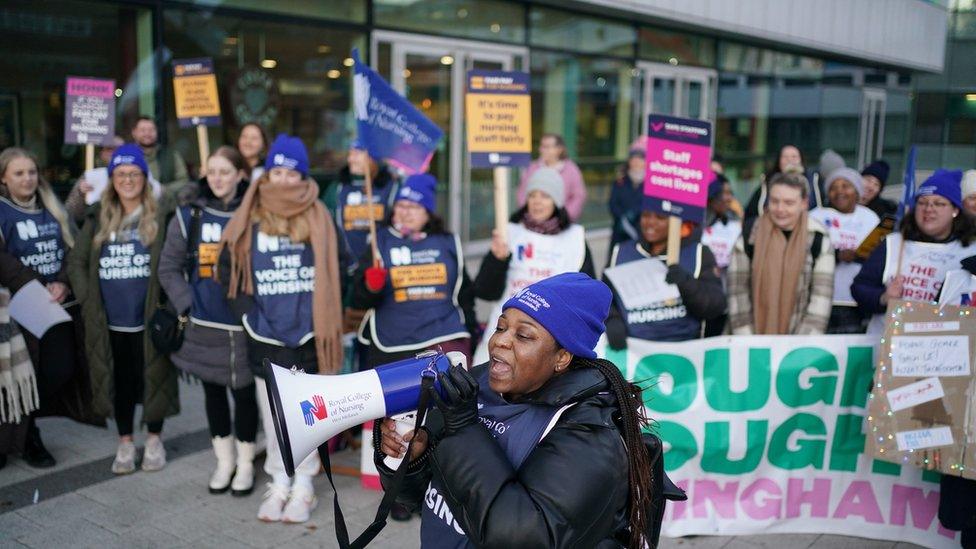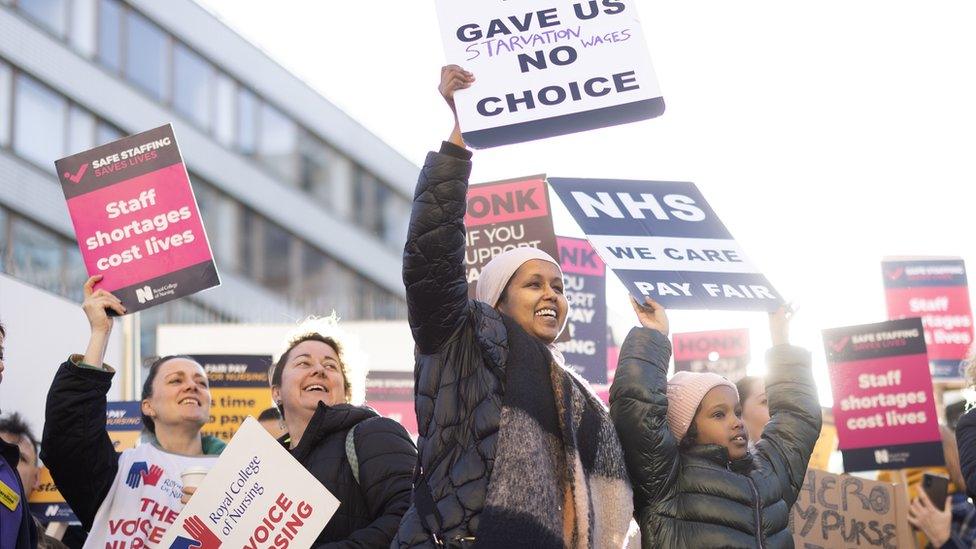Strikes Q&A: What are they and how are they called?
- Published

Royal College of Nursing members on the picket line in Cardiff on Tuesday
Wales and the rest of the UK are facing a wave of strikes in key services the like of which hasn't been seen for decades and many of us have never experienced.
Health workers (apart from Scotland), rail, postal staff and border force staff are amongst those demanding better working conditions and pay increases as prices keep rising.
But who calls a strike and what are the rules on workers refusing to do their jobs?
What is a strike?
A strike is when workers formally agree among themselves to stop working because they believe they are not being treated fairly by their employer.
Strikes can take place for all sorts of reasons, but they tend to be over how much people are paid and/or their working conditions.
Is it legal to go on strike?
Yes, it is, provided the trade union representing the workers involved has followed strict rules, external set down in law for strikes (we'll come on to the role of trade unions in a bit).
A strike can only take place legally when a majority of trade unions members in a place of work agree to the action through a formal vote, or ballot.
That means that if less than half of a union's members vote the strike is not legal.
This is why nurses at Aneurin Bevan health board are not striking alongside Royal College of Nursing members in the rest of Wales. The 50% turnout in the ballot was not reached in that health board area.
Members must vote on a piece of paper and return their ballot in a prepaid envelope.
Other rules include requiring unions to give employers are least 14 days notice that they are to begin strike action, unless it is agreed with the employer that seven days notice is enough.
The courts can stop a strike from taking place if the rules have not been followed.
Might the rules be tightened further?
Earlier this month, Prime Minister Rishi Sunak said he was working on "new tough laws" to protect people from strike disruption.
A bill has been introduced to the UK Parliament to ensure minimum service levels on transport networks during strikes but it is yet to be debated by MPs and peers.
Downing Street has said the legislation would be extended to other services but would not specify which services or when this might happen.
Asked by the BBC if he would consider banning strikes in emergency services, the prime minister said the "government is always going to be reasonable" but refused to rule it out.

Postal workers have been striking in the runup to Christmas
Can anyone strike?
No. Strike action is banned in a limited number of jobs. This includes the police, the armed forces and prison officers.
Workers who are not a member of a trade union are also allowed to strike, alongside union members, provided the strike is legal.
Do striking workers lose money?
Pay is normally deducted from salaries for each day they are on strike, unless the strike takes place on a day in which they would not normally work.
What are trade unions?
Individual workers join trade union to negotiate on their behalf with employers with the aim of getting better pay or working conditions.
A union might ask its members if they want to strike, through a ballot, if union leaders feel the employer is not offering as much as they should.
Sometime deals can be reached during the process of consulting workers on strike action, meaning the action doesn't take place.
Unions can also, for example, act on behalf of a worker who is facing disciplinary action from their employer.
Unions are funded by workers through a deduction from their wages.
How many people are members of trade unions?
According to official figures published in May, 23.1% of UK employees were trade union members last year.
However, despite a decline in membership in England, Scotland and Northern Ireland, the proportion of members in Wales had risen by 3.7 percentage points to 35.6%, external, its highest since 2014.
Related topics
- Published1 August 2023

- Published20 December 2022

- Published20 December 2022

- Published15 December 2022
